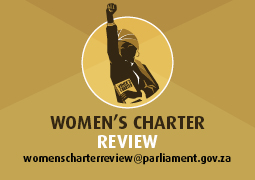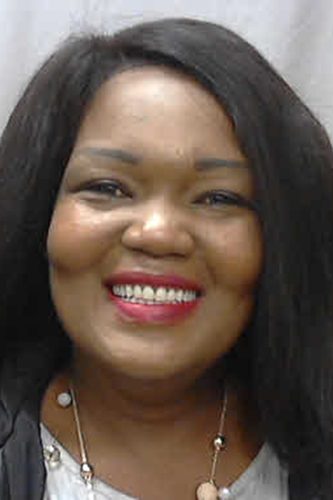
The 1994 Women’s Charter, currently under review by Parliament, must be adopted by municipal councils across the country to make its implementation mandatory and assist municipalities in developing gender-responsive policies that will ensure women’s emancipation.
This proposal emerged during the Free State leg of the on-going public consultation process by Parliament on the charter. The consultation is going to all the provinces, district by district, and this week’s focus was on Thabo Mofutsanyane and Xhariep district municipalities.
Participants in the virtual consultation session said there was not much to be reviewed in the charter, but what was needed was effective implementation, as well as monitoring and evaluation.
“There is not much to be reviewed, what we need is implementation and monitoring. we need effective implementation of the charter to realise the ideals as envisaged in 1994”, said Ms Mapaseka Mothibi-Nkoana.
She also proposed that the charter must be translated into all the official languages to be able to accommodate more women. “Let us remove the language barriers by ensuring that concepts are defined in laymen terms and in all the languages.”
Ms Malefu Ngobese said in order to ensure that all municipalities implement gender budgeting, municipal councils across the country must adopt the charter so that it becomes mandatory and used as a guideline in policy formulation.
Other women in the discussion submitted that the reviewed charter must be able to address the “triple challenges of poverty, unemployment and inequality” in the country by ensuring that women play a meaningful role in the economy.
Also discussed was the relevance and effectiveness of protection orders in protecting victims of domestic and gender-based violence, and the common situation of victims of abuse withdrawing cases because they depend on the perpetrators.
The consultation of the Women’s Charter Review is jointly headed by the Deputy Chairperson of the National Council of Provinces (NCOP), Ms Sylvia Lucas, and the Deputy Speaker of the National Assembly, Mr Lechesa Tsenoli.
Ms Lucas described the interaction as fruitful and enriching and urged participants who are law-makers to assist in the implementation of the charter and development of gendered policies.
The Deputy Speaker said a non-sexist society cannot be achieved without freeing people from the trap of want and violence.
“We need to work together as men and women so that we are able to pinpoint the roots of the problem, we have to review the effectiveness in which we are implementing our policies and plans to address challenges such as unequal pay of women, violence and other discriminatory practices that we face,” said Mr Tsenoli.
He also paid tribute to struggle stalwarts such as Charlotte Maxeke, Ray Alexander Simons and Dora Tamana who first introduced the charter in the 1950s, and paved the way and provided leadership and guidance in the struggle for women.
“They played leading role on behalf of other women in the country and put on the national agenda a series of issues that needed to be achieved,” the Deputy Speaker added.
The Speaker of the Free State Provincial Legislature, Ms Zanele Sifuba, also participated in the virtual session, and called on women to continue with the struggle until total emancipation was realised. “We need to continue until we realise the objectives of the Beijing Declaration, which includes the freeing of women from all forms of violence,” she said.
She further explained that the review of the charter was trying to find out where are the challenges and what needs to be done to address them.
Ms Sifuba was particularly concerned about the high rate of violence against women in South Africa, saying it was “a signal that we haven’t moved to where we want to be to change the plight of women”.
“For as long as women’s emancipation is not achieved in our society, it means we cannot achieve a developed society – for as long as the plight of women is not attended to, there will be no development,” the Provincial Speaker argued.
By Sakhile Mokoena
10 July 2020

